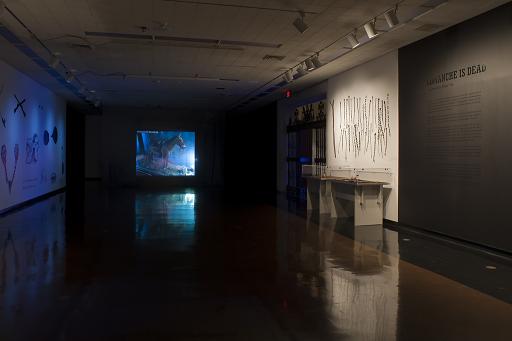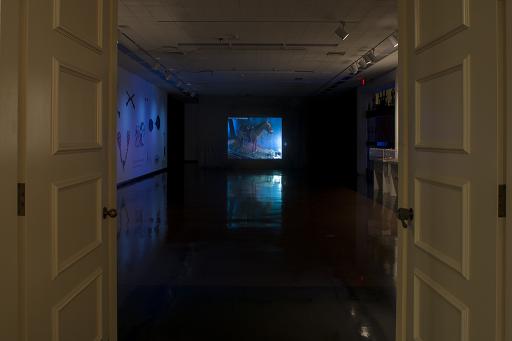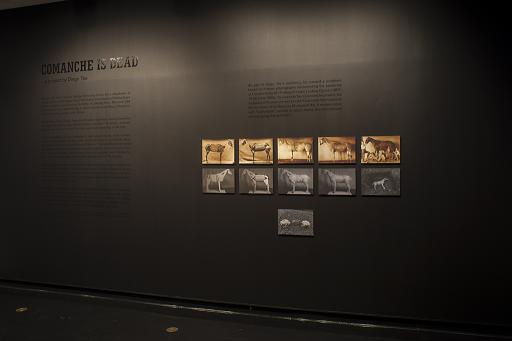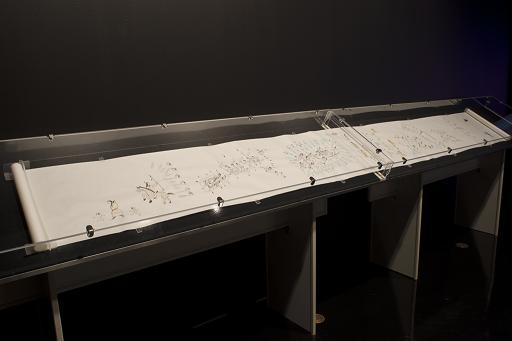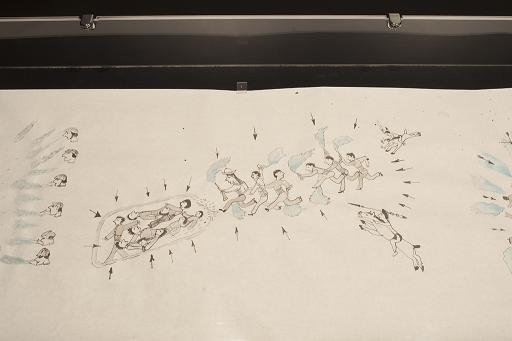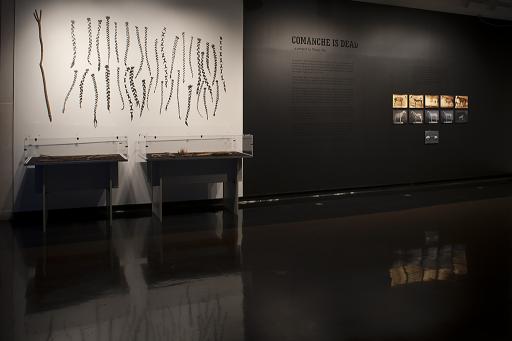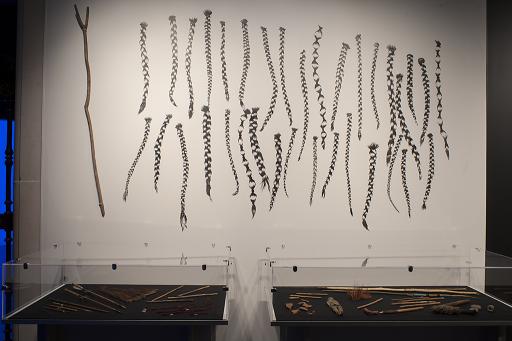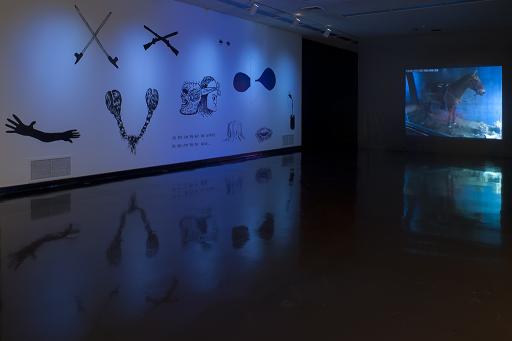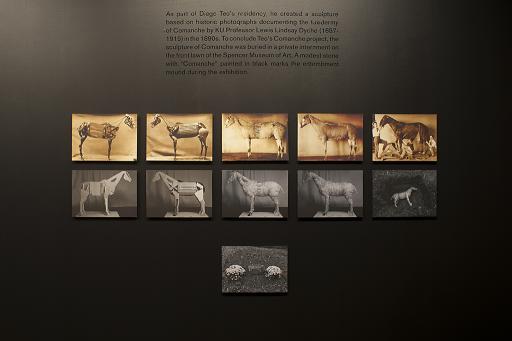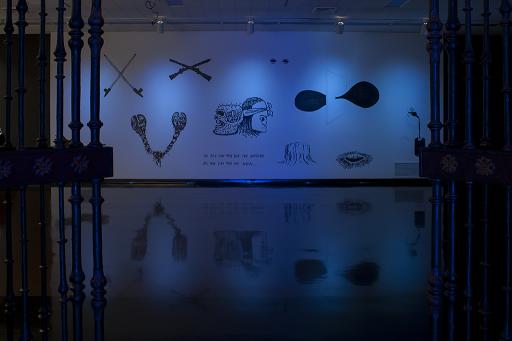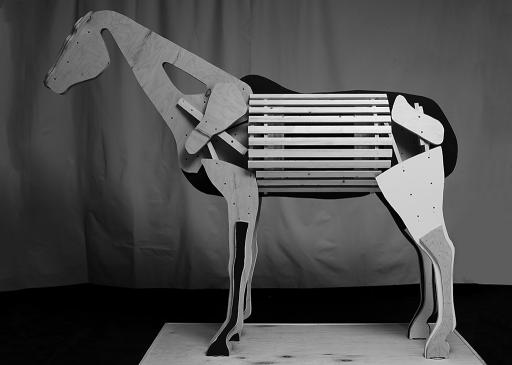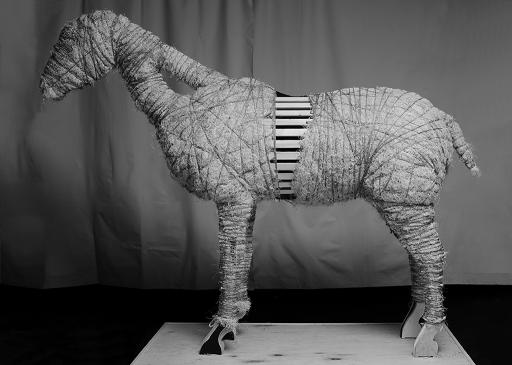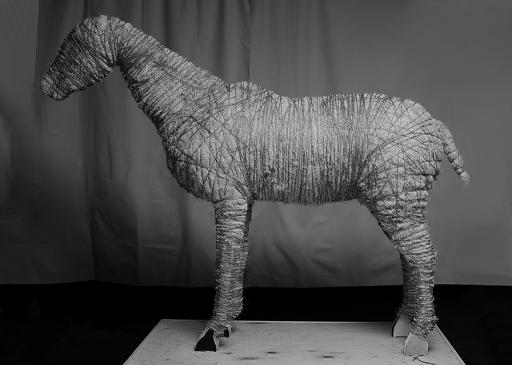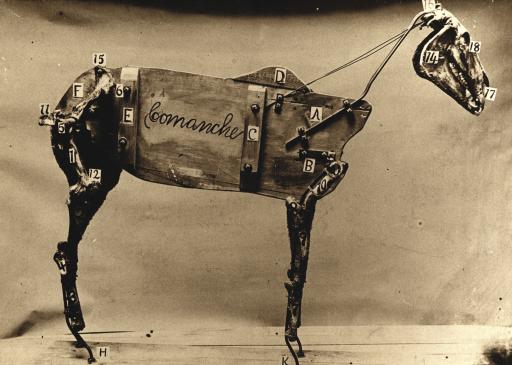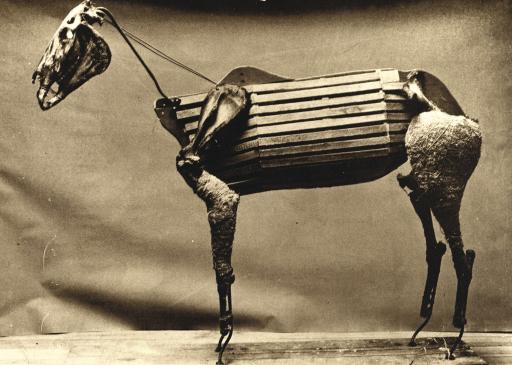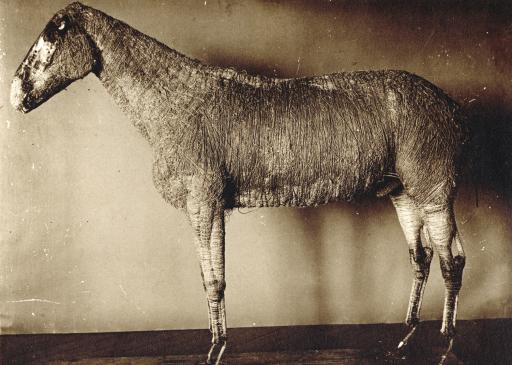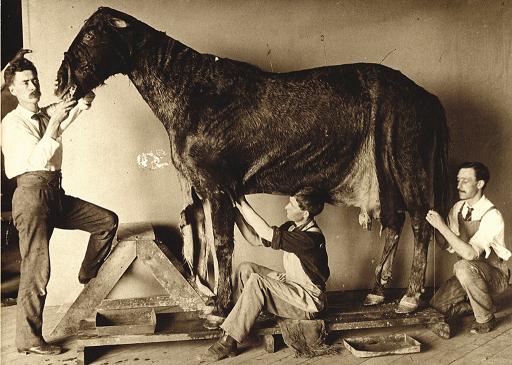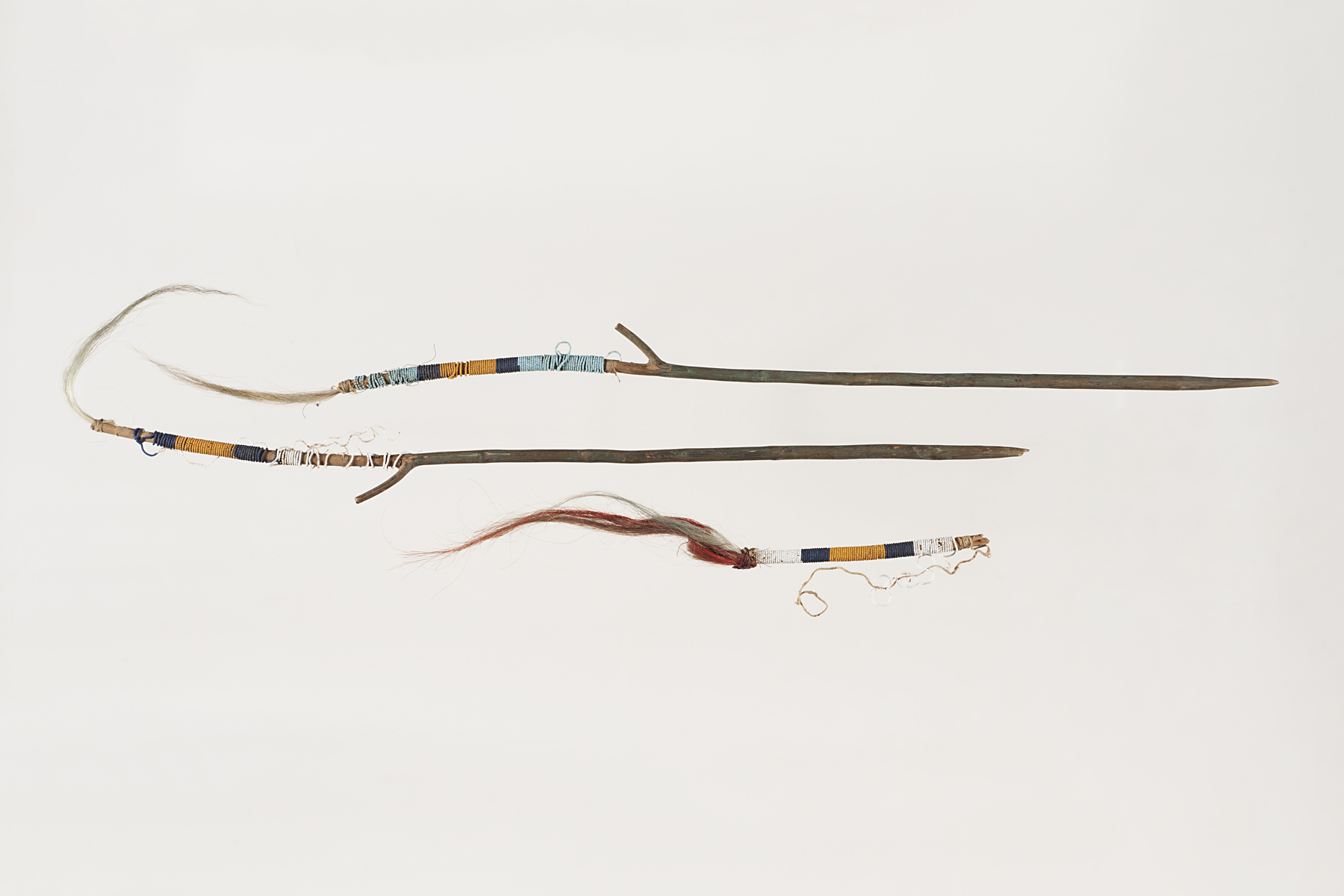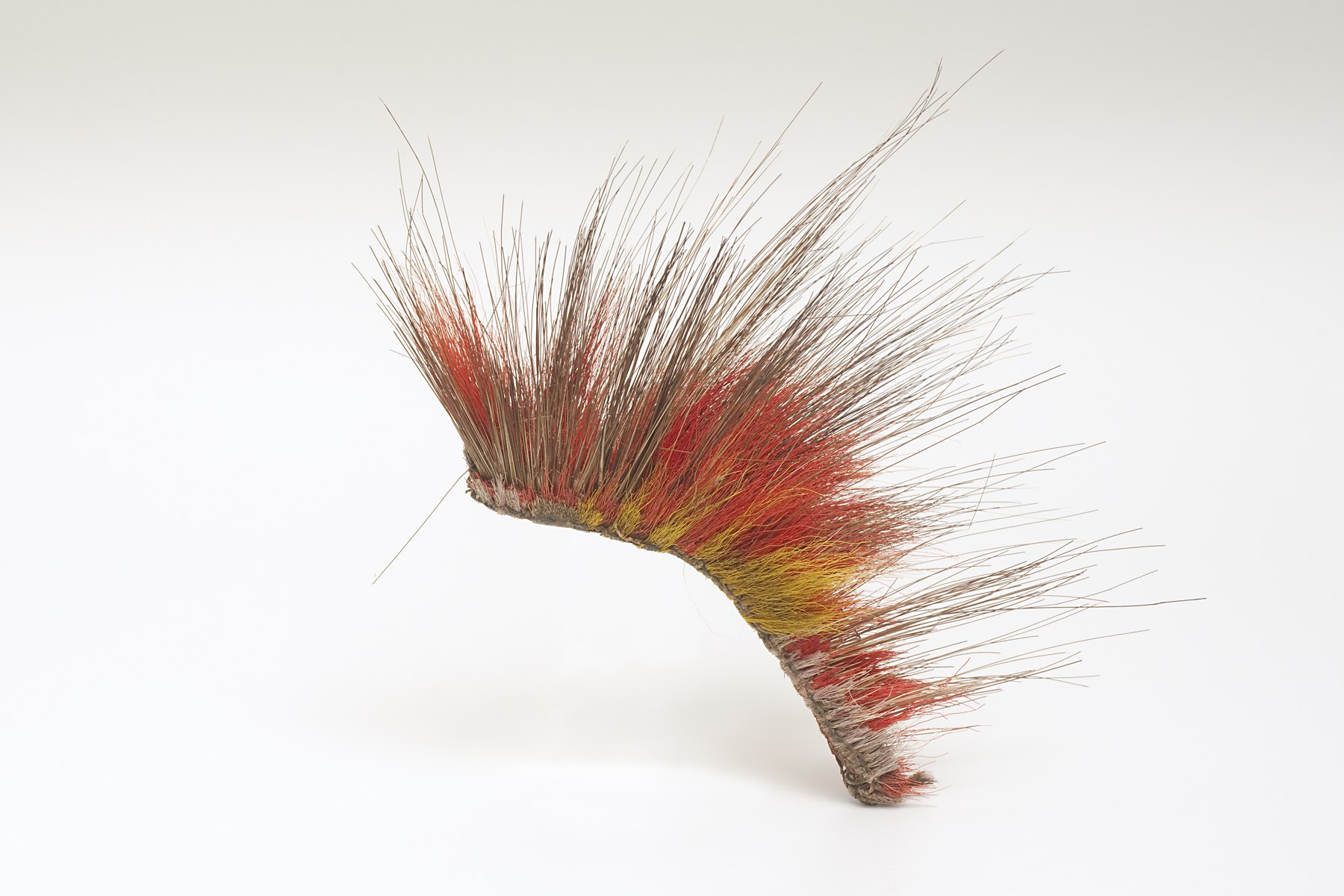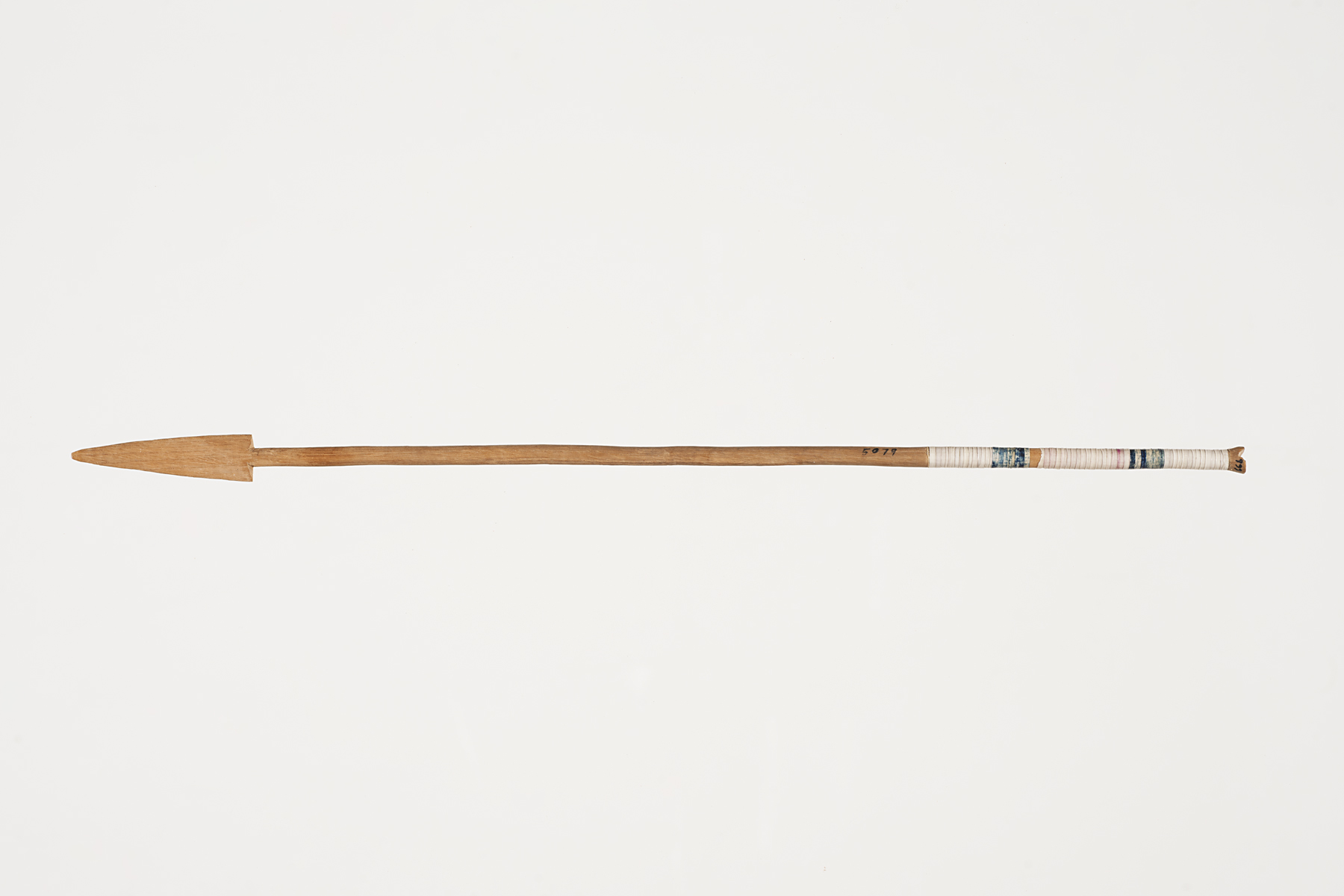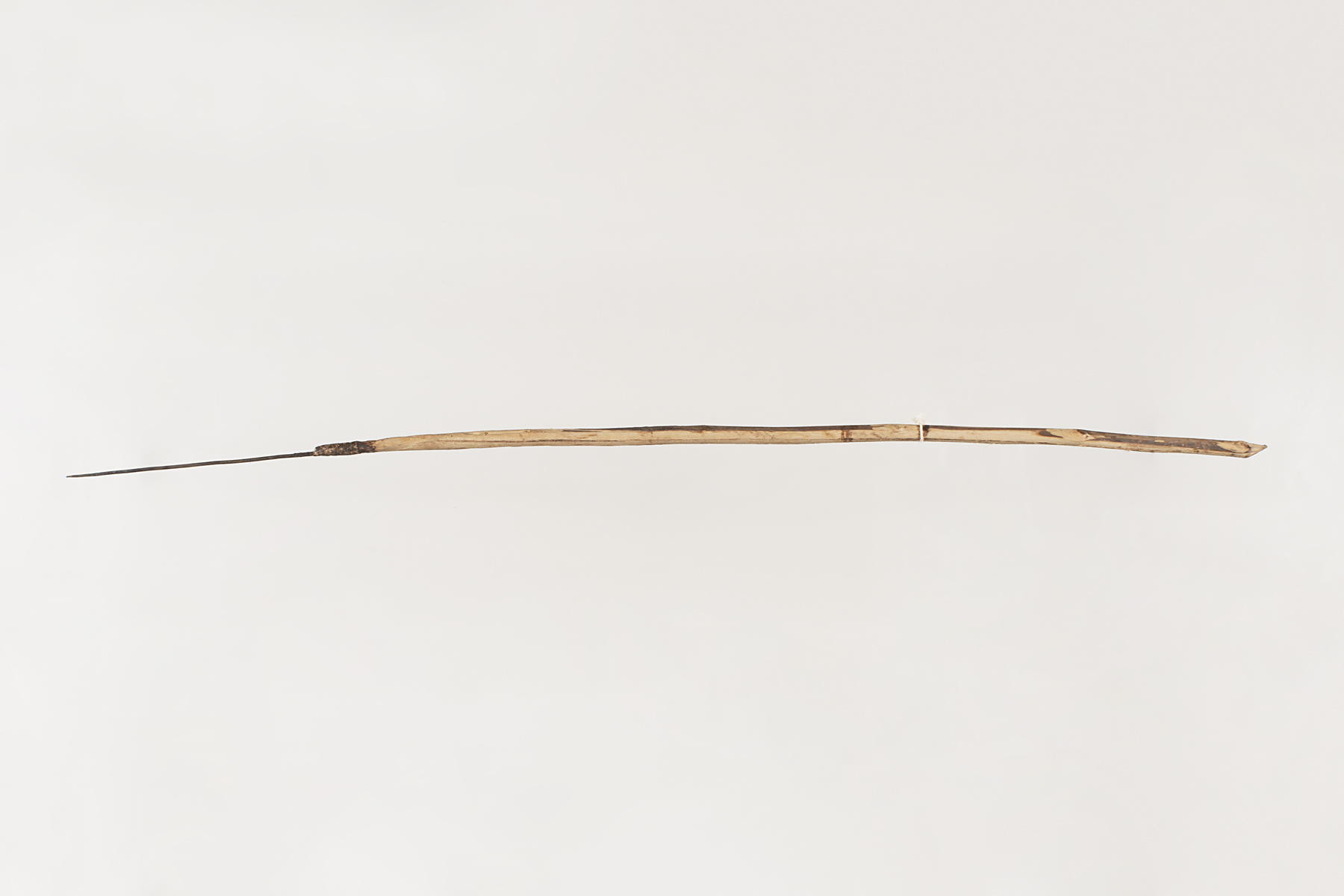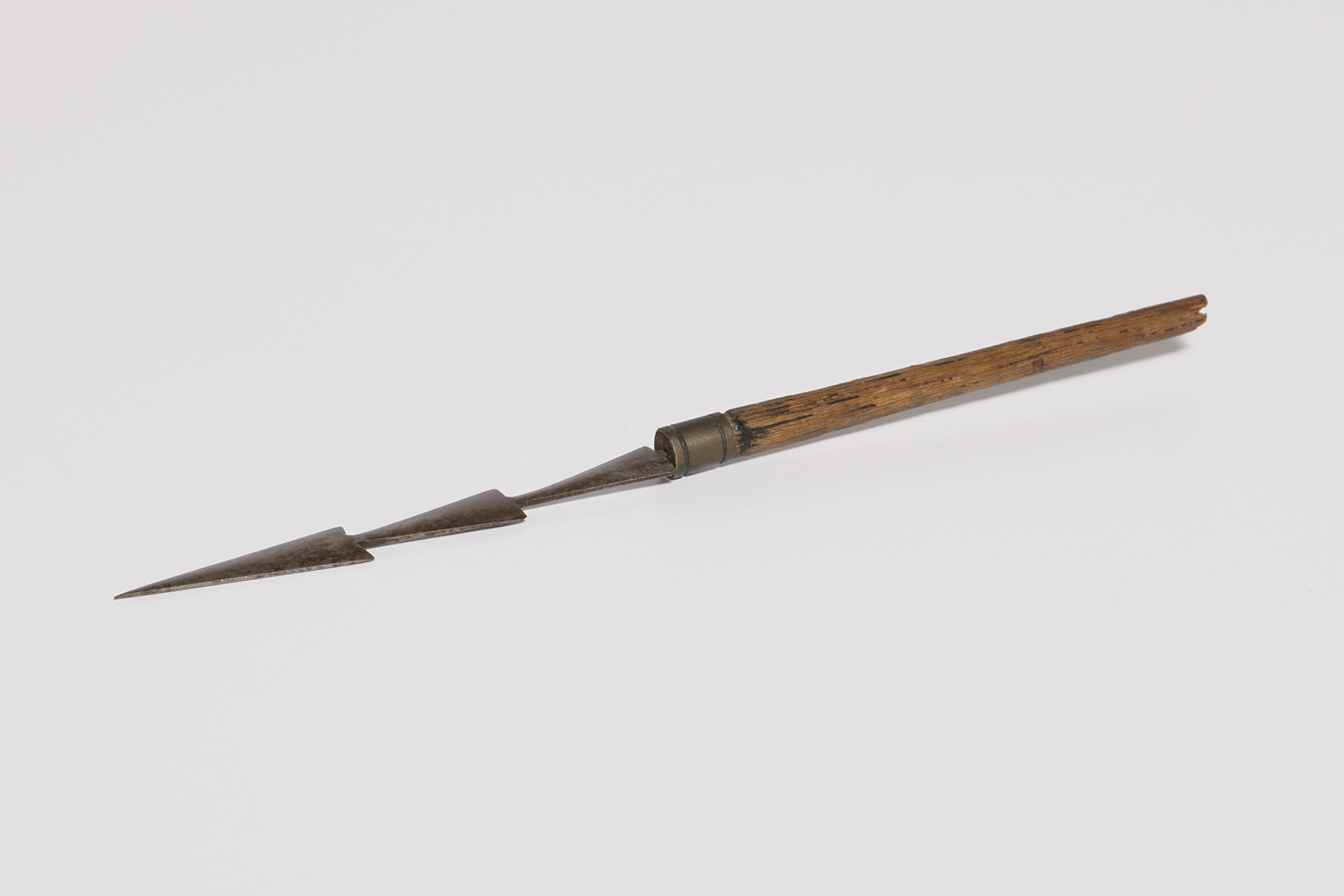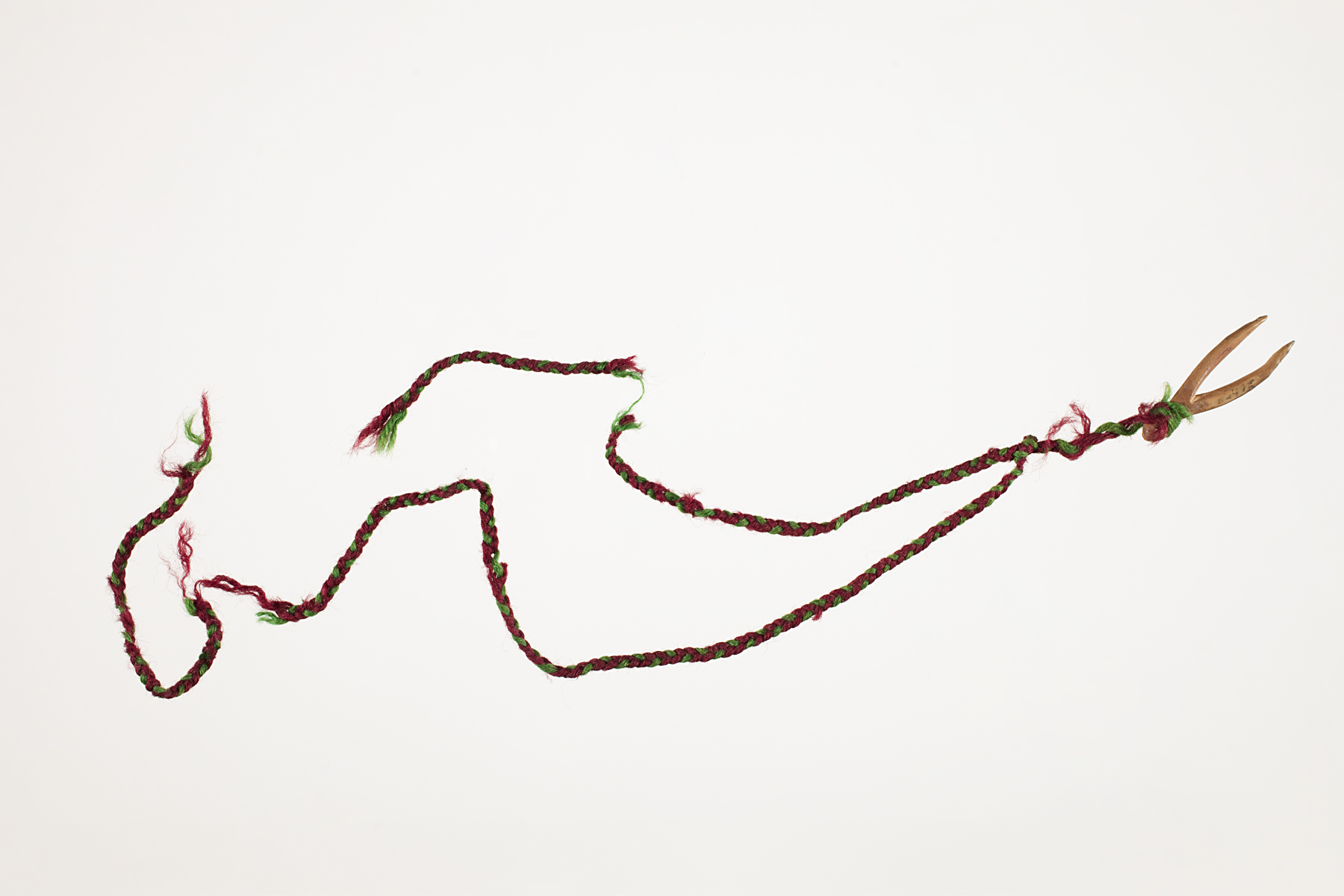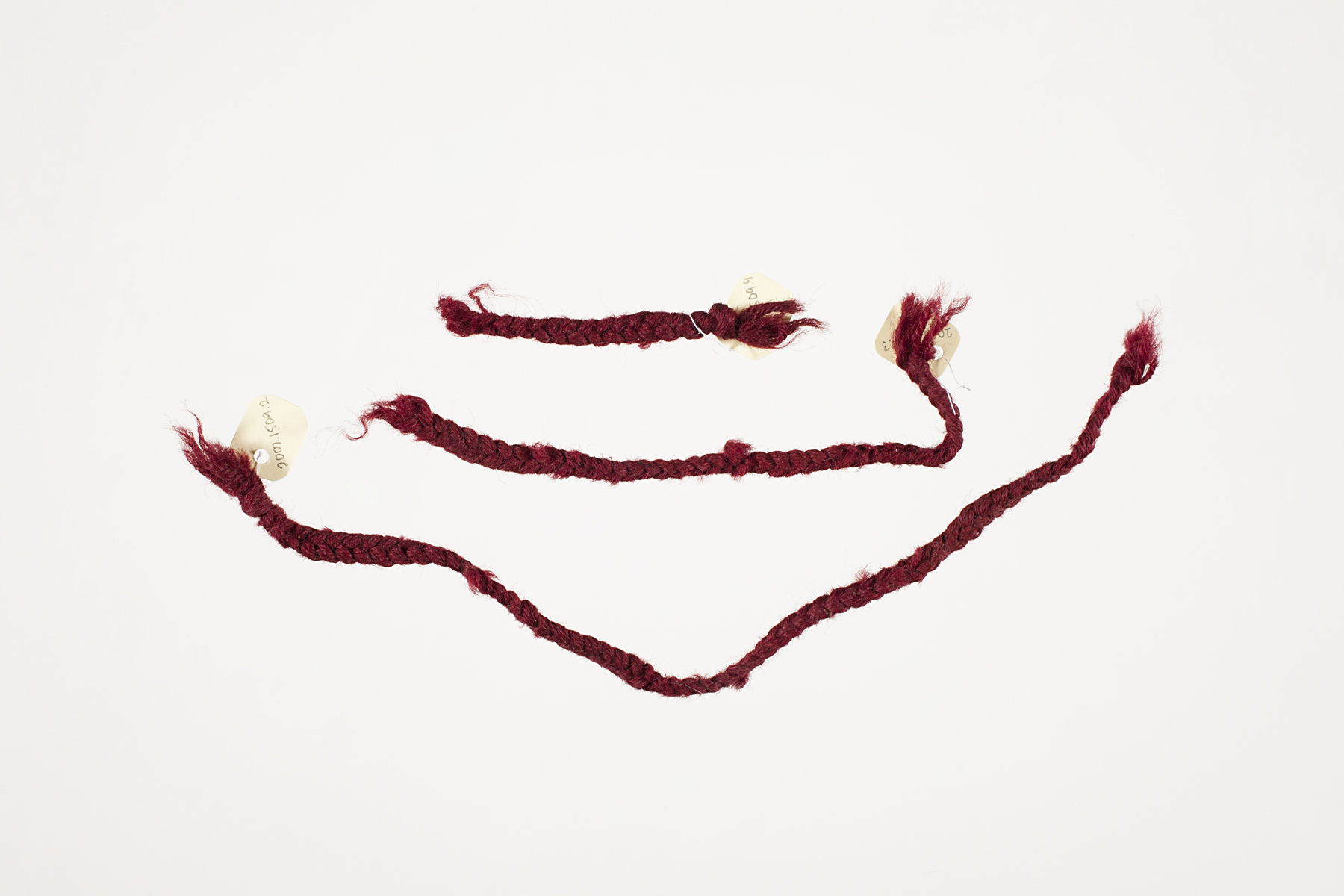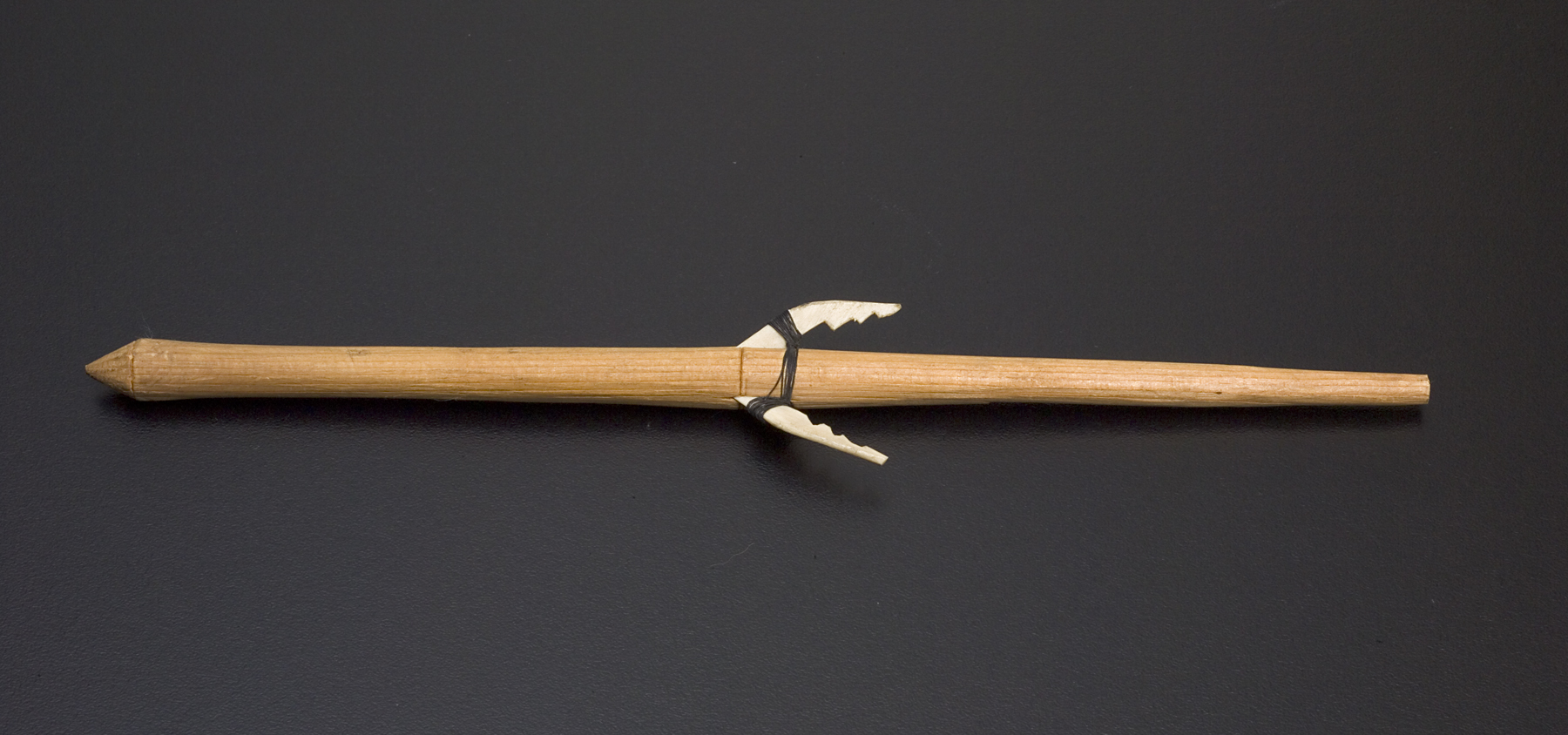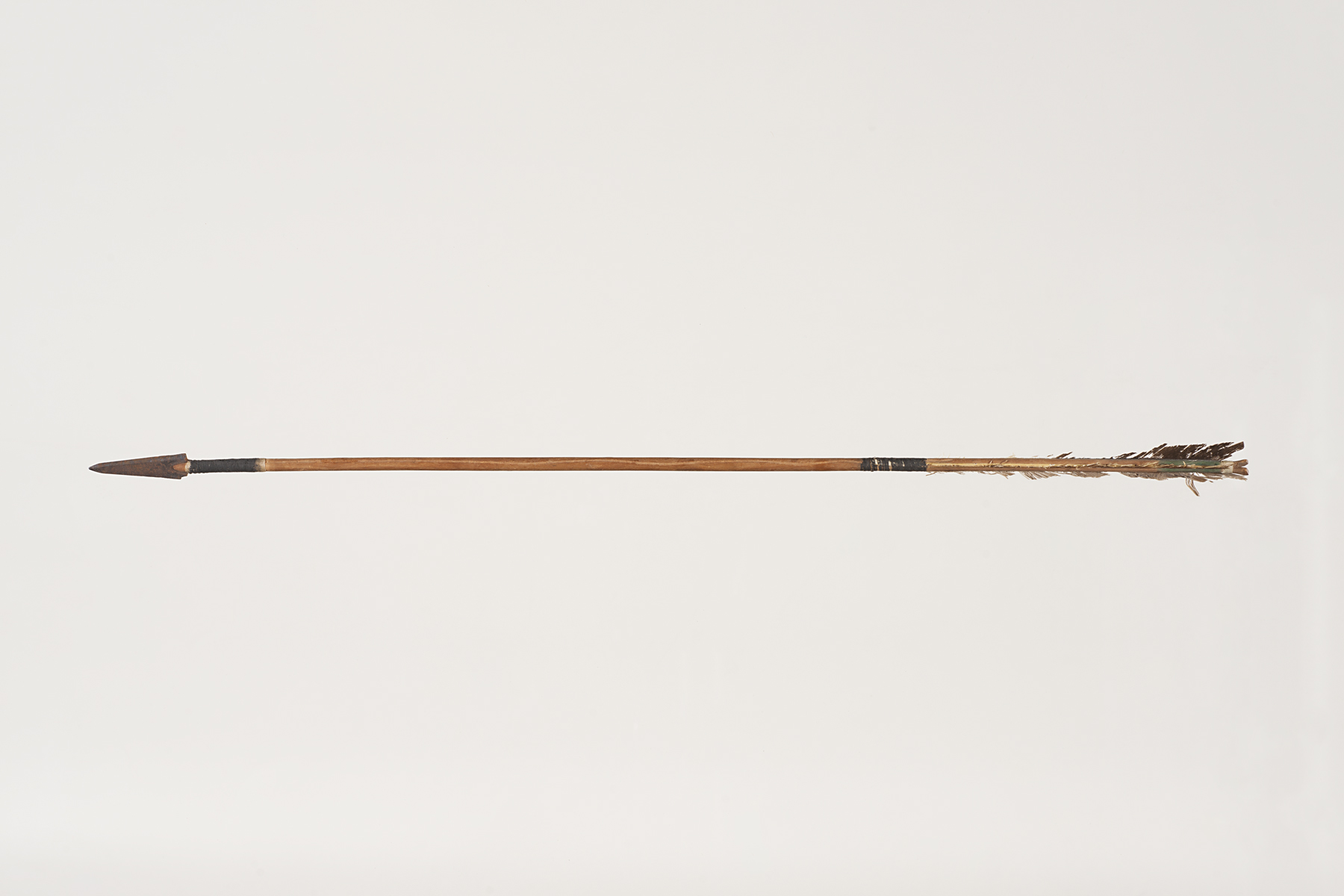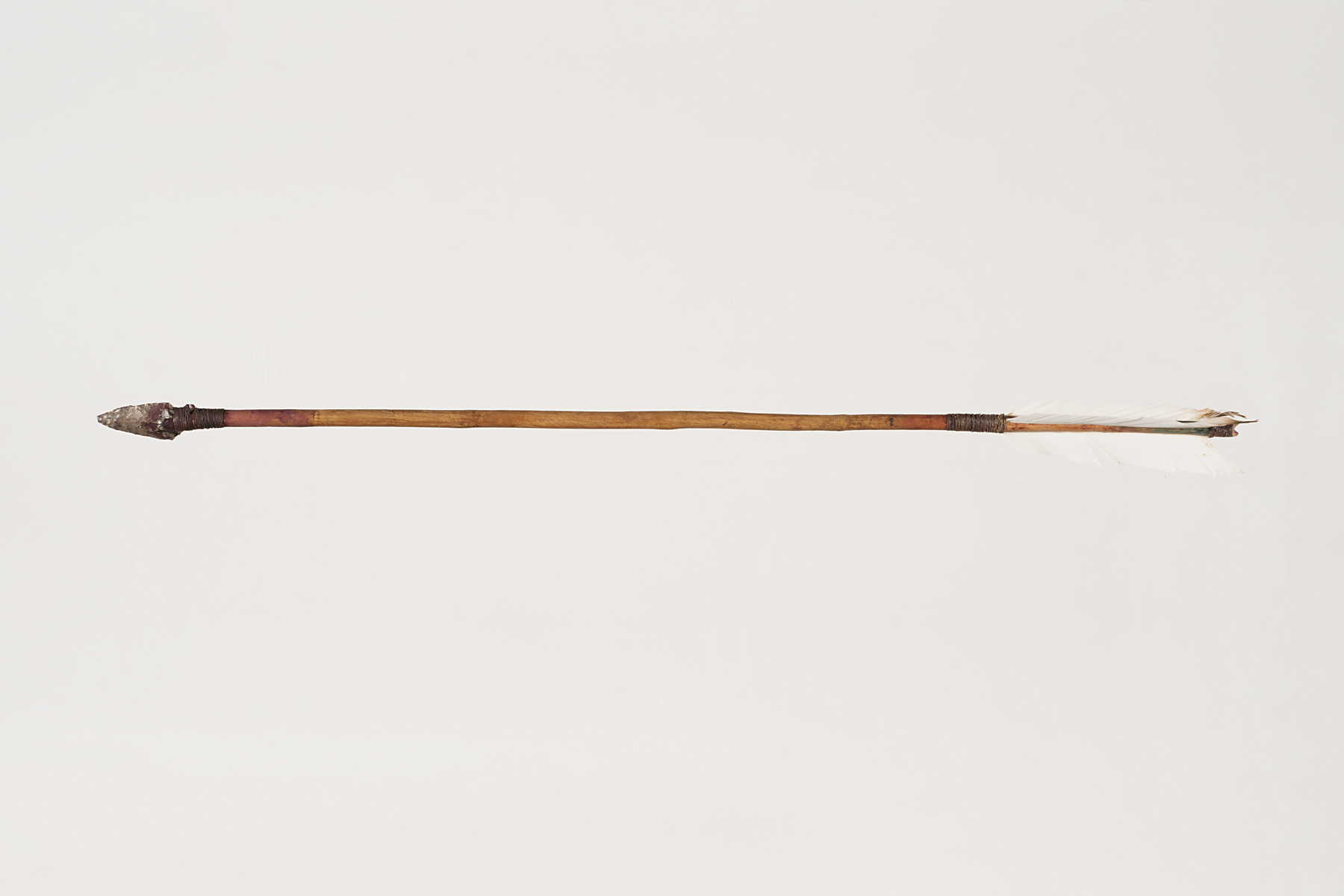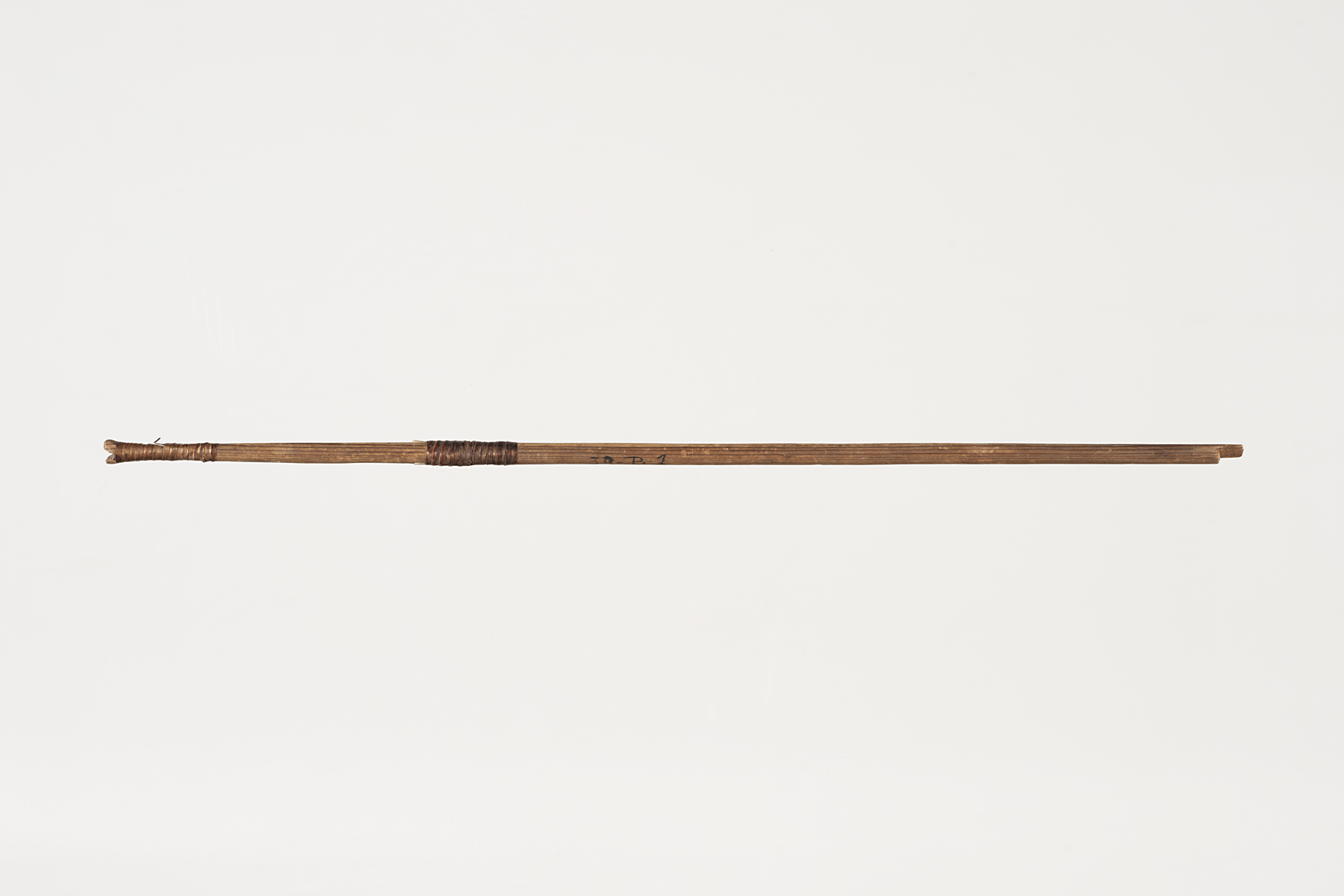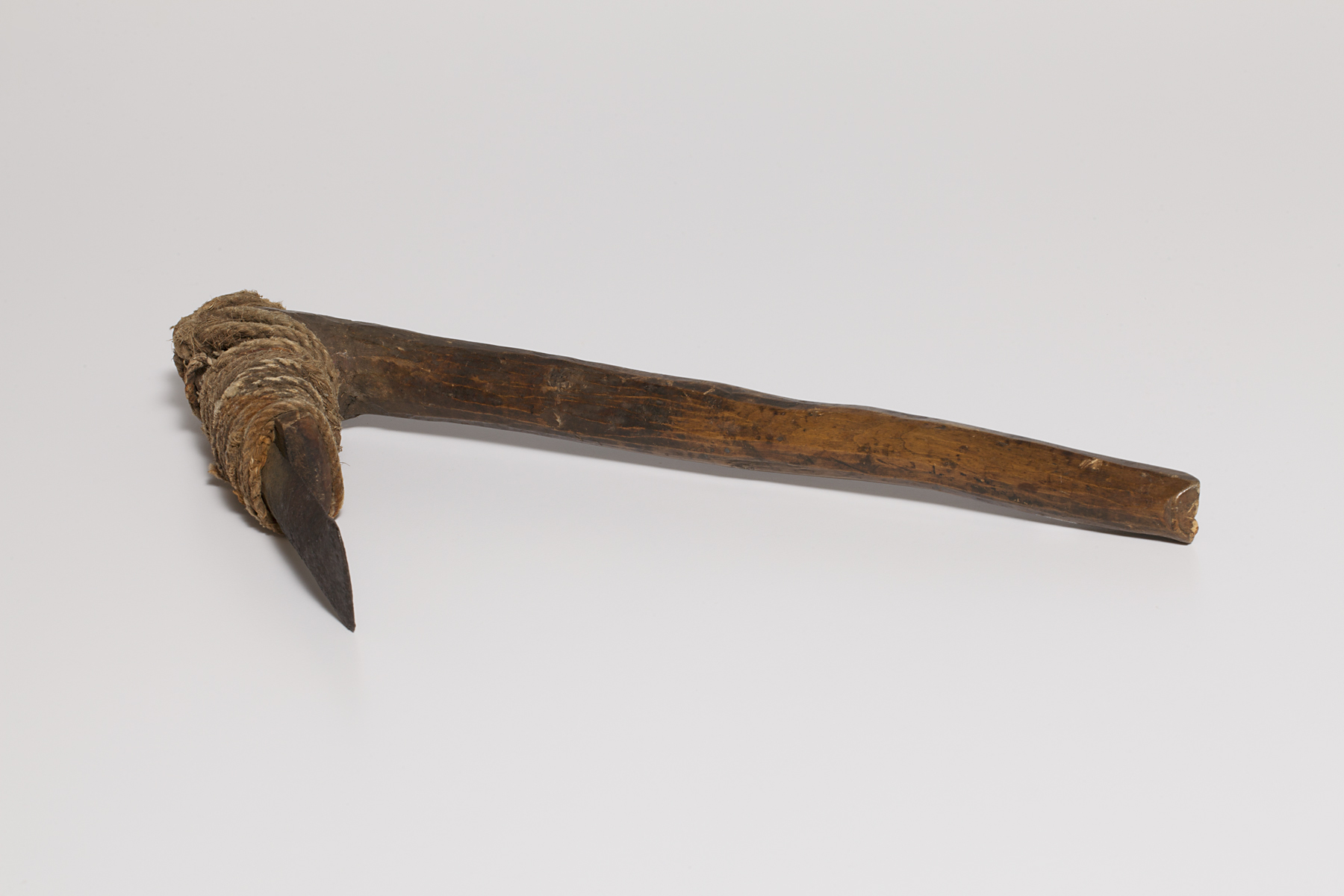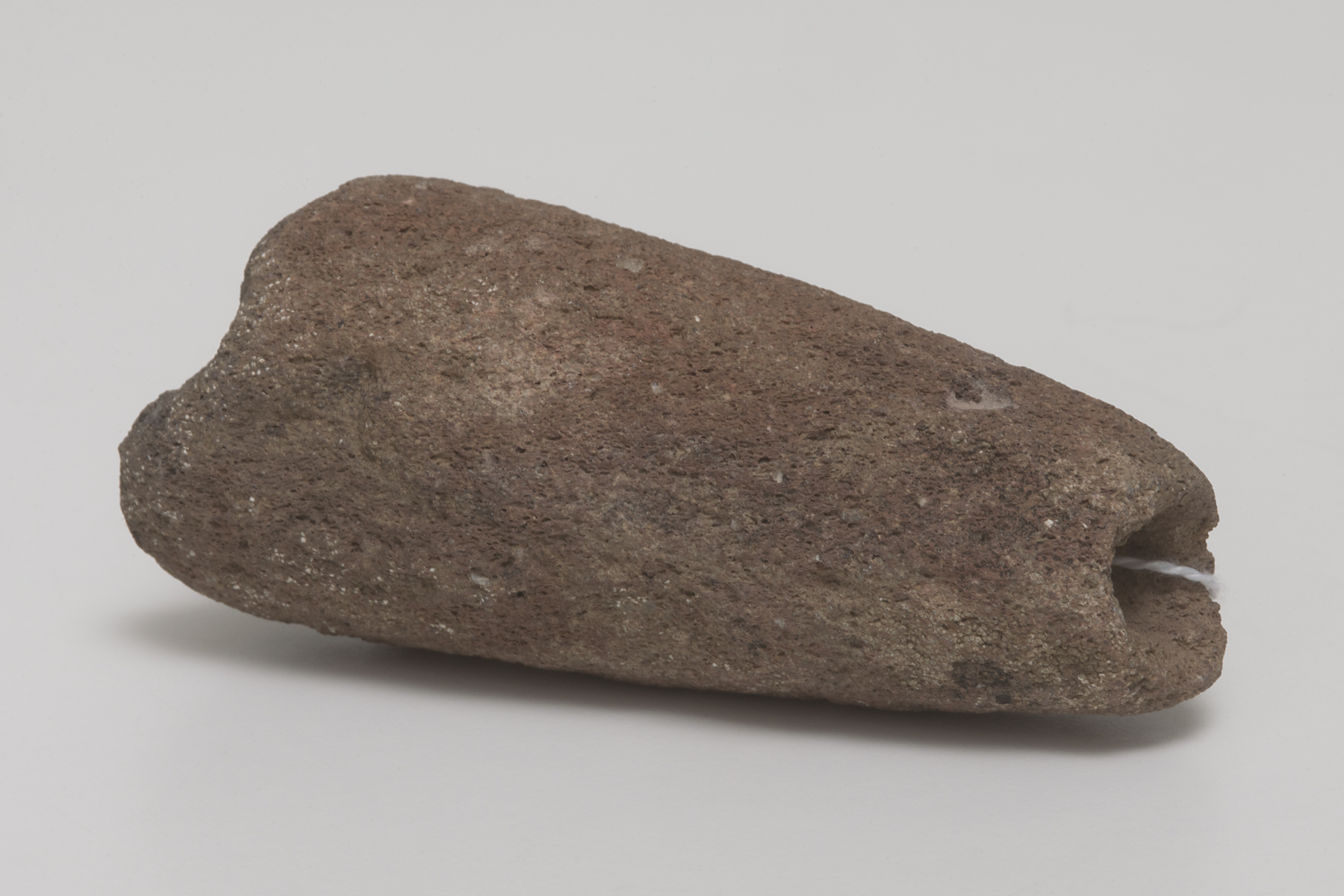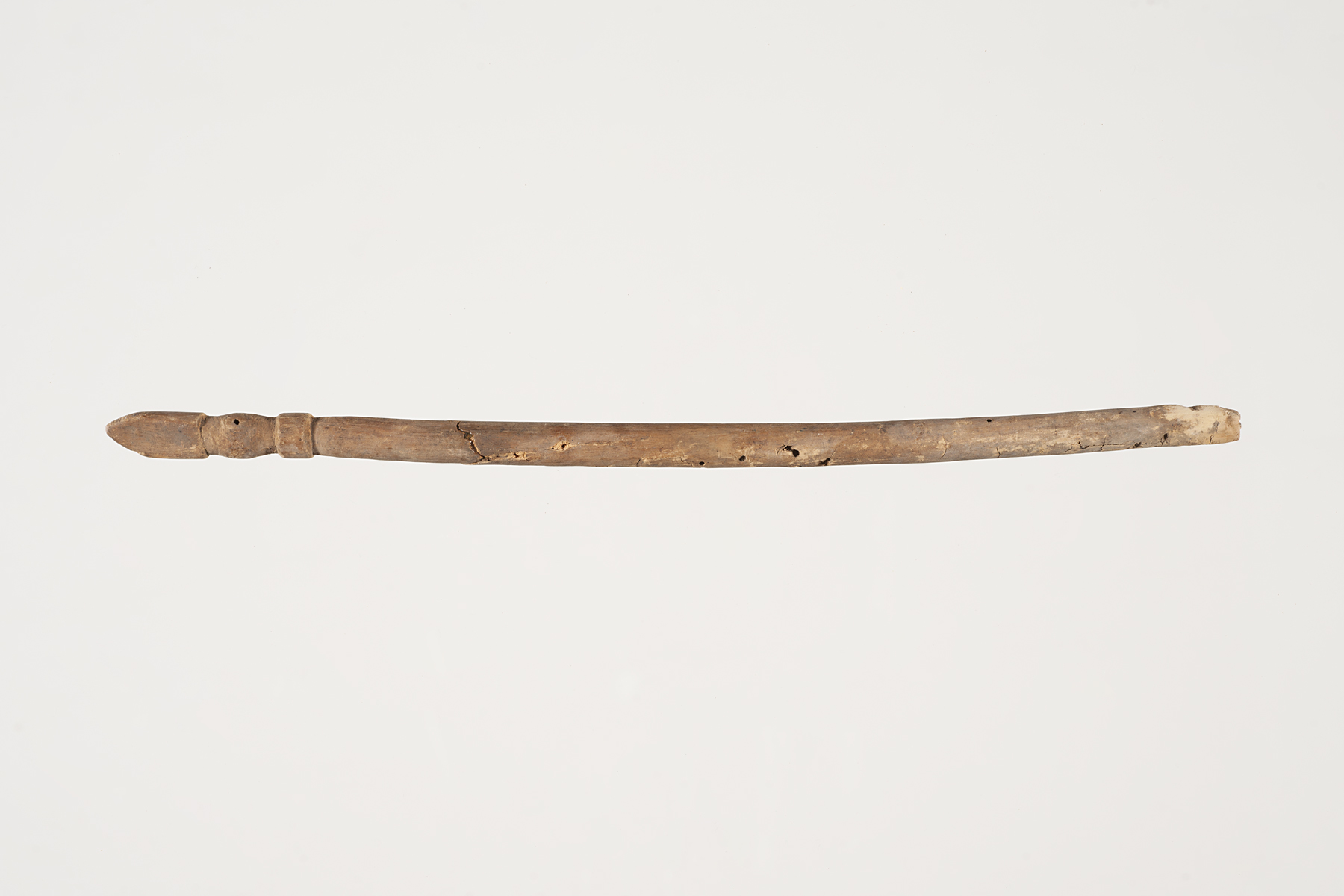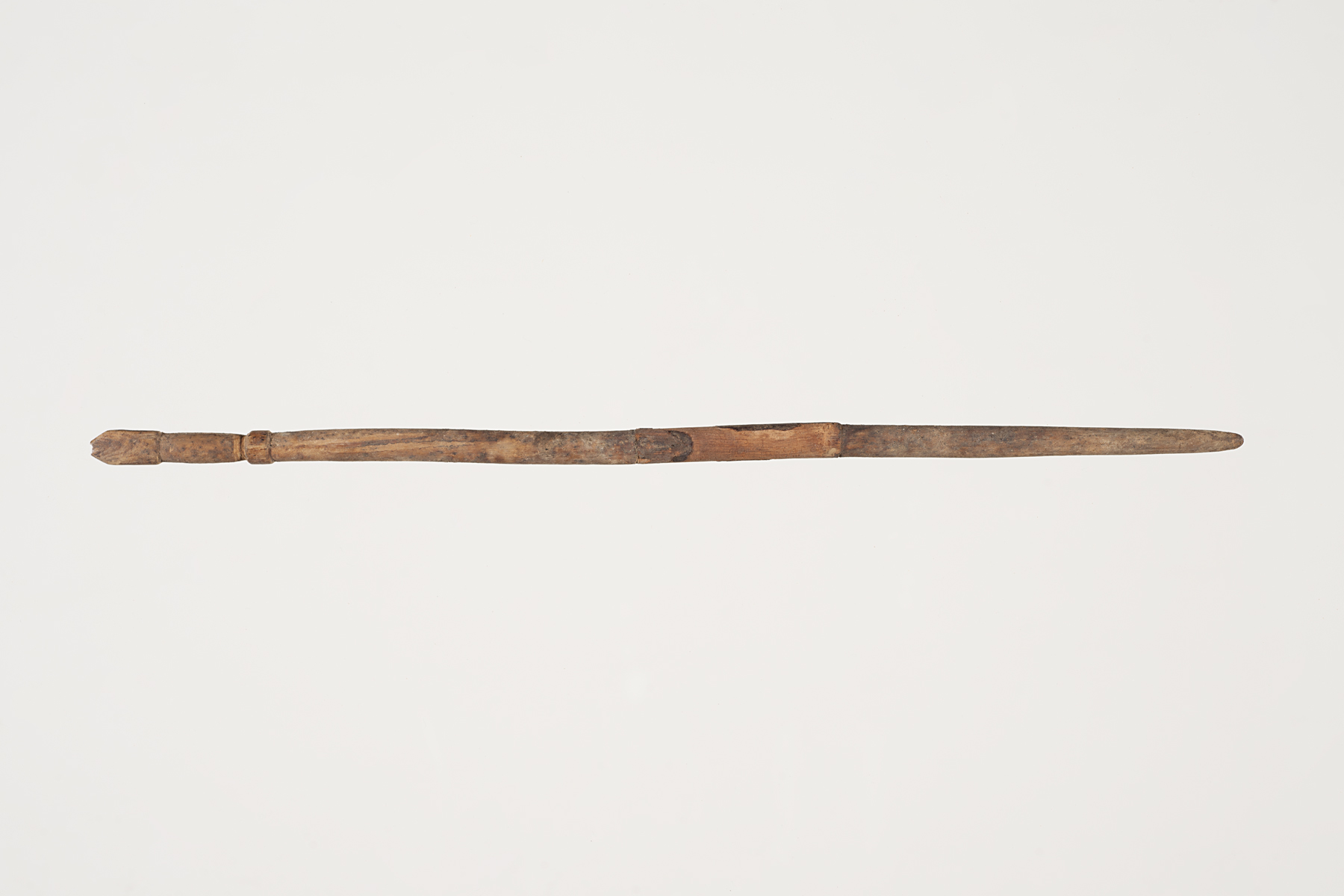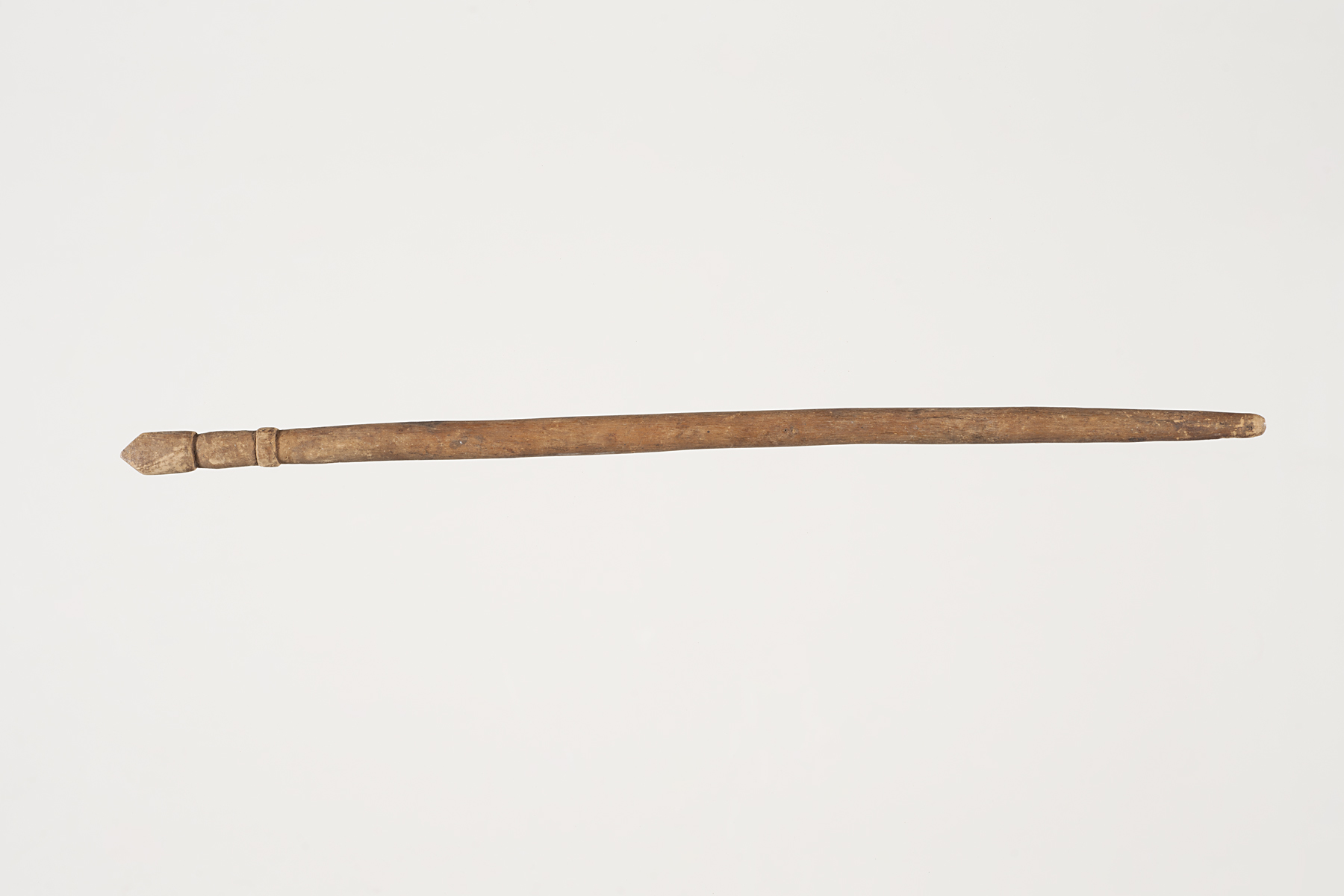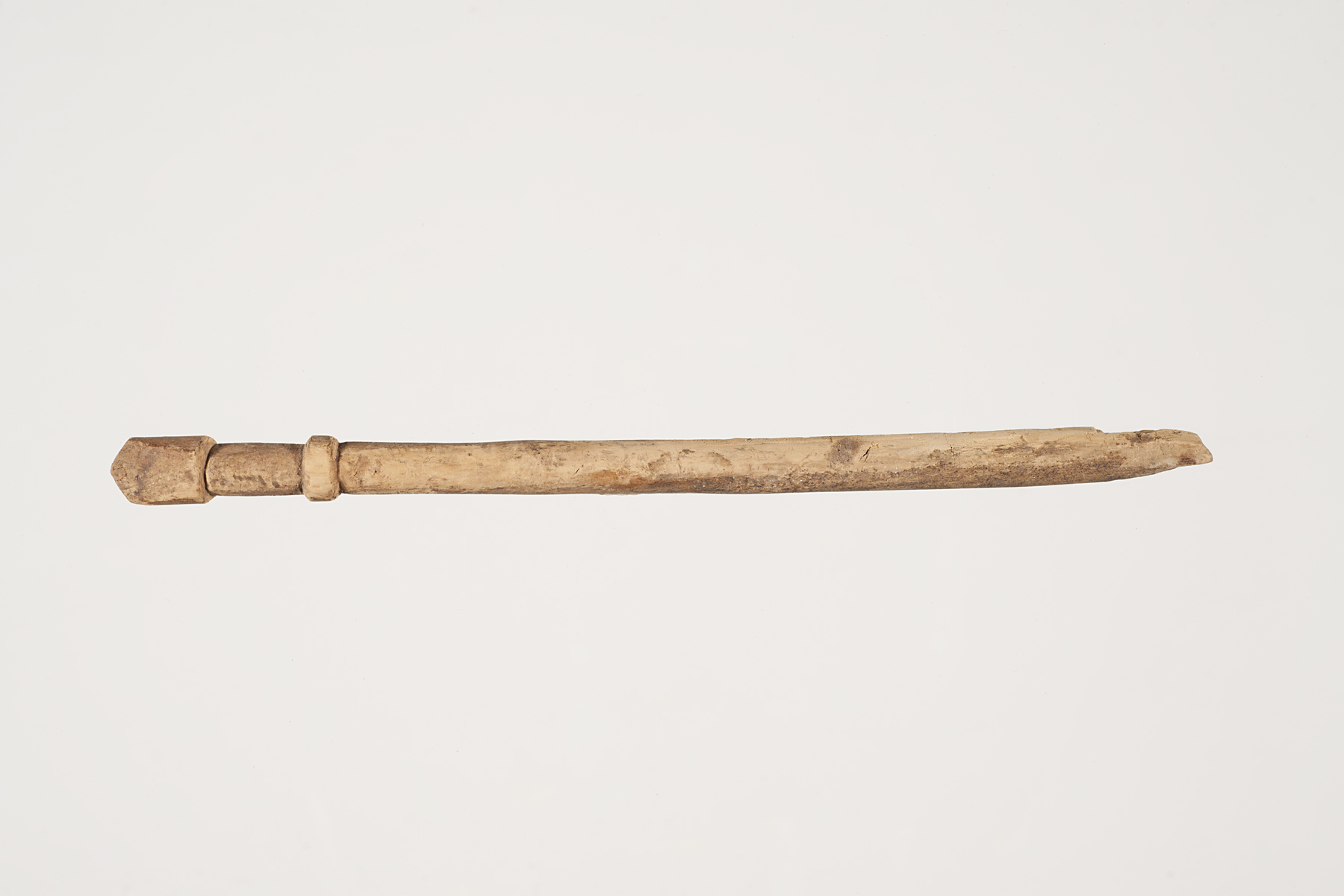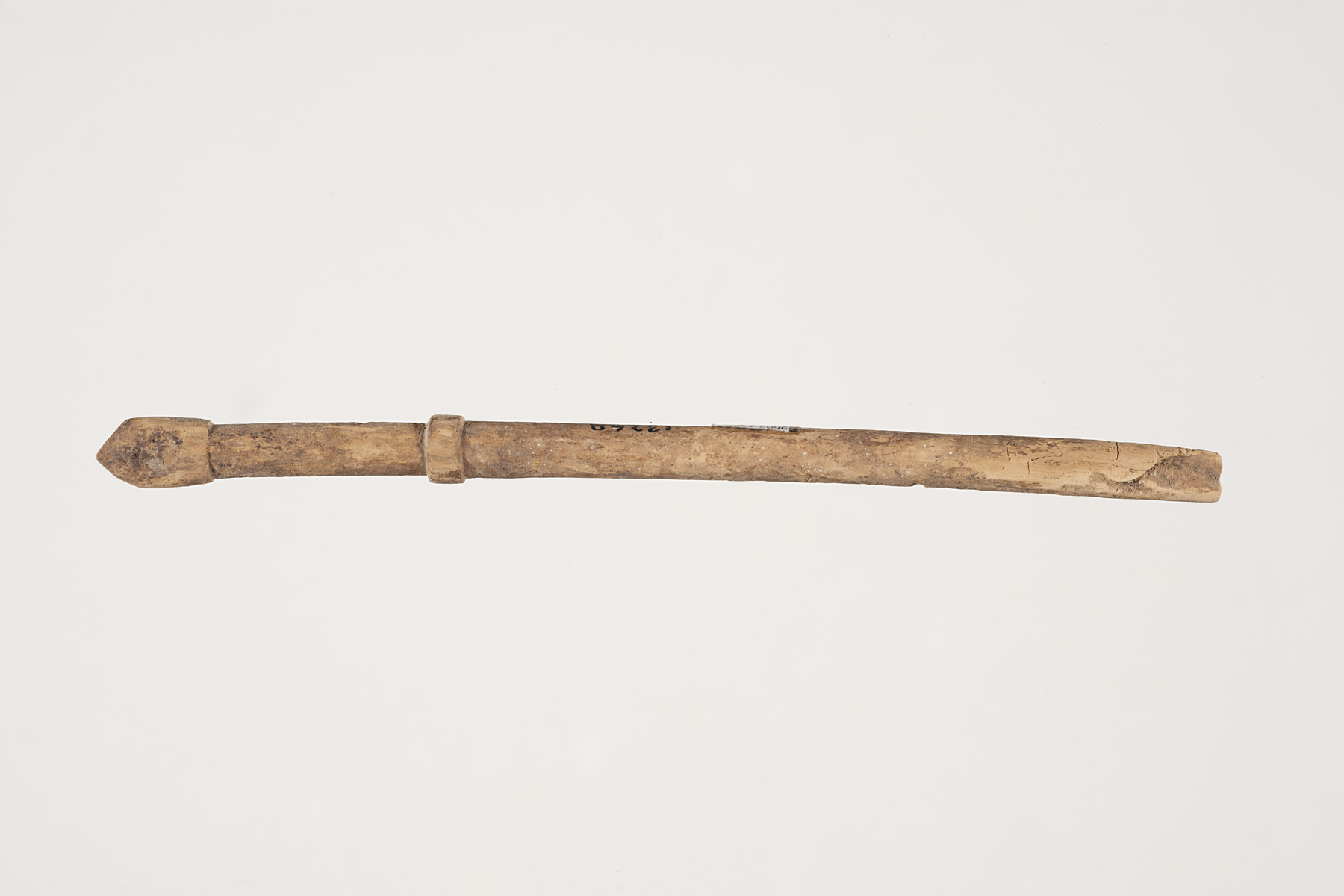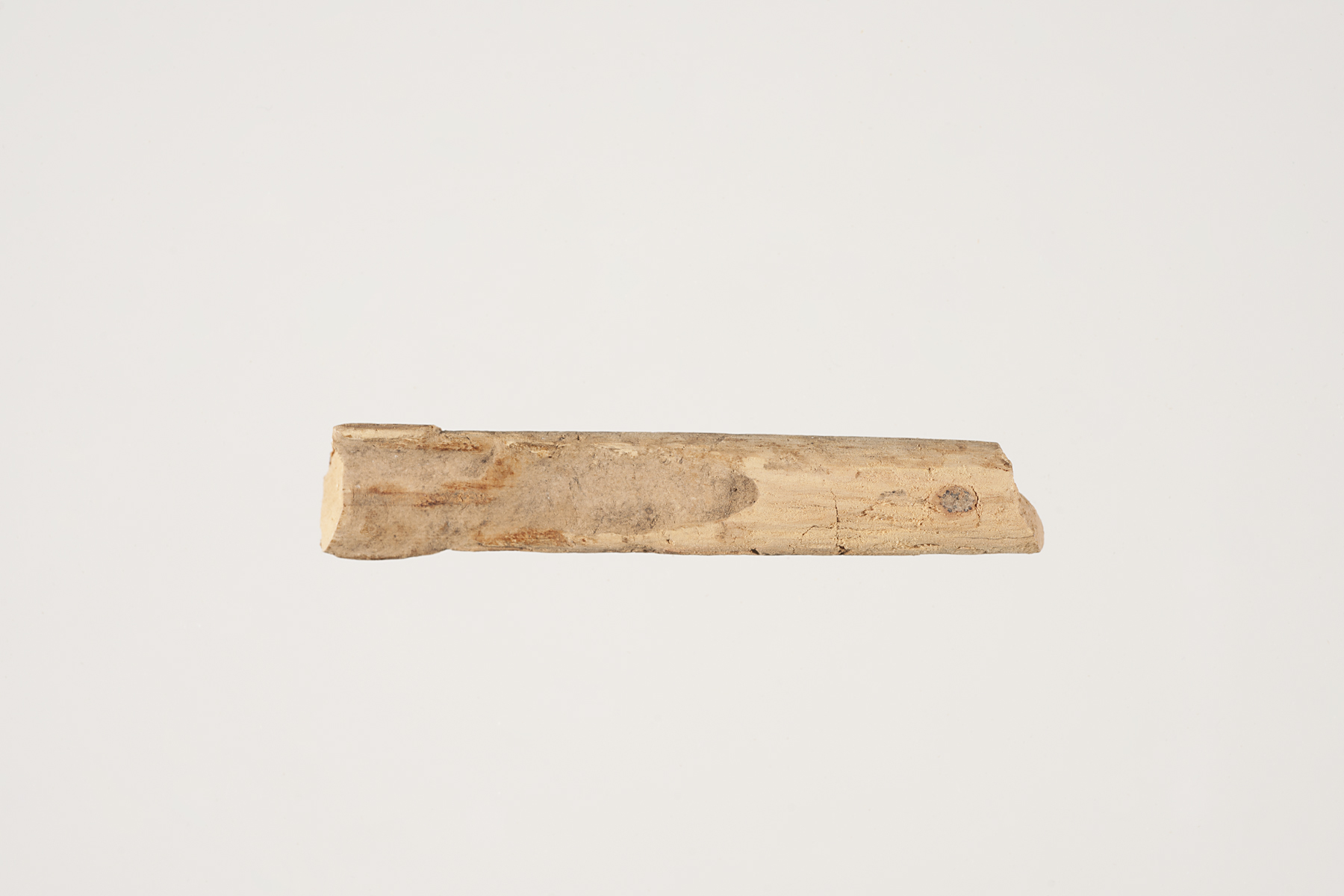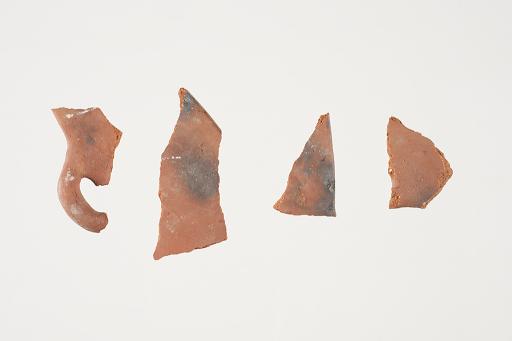Comanche is Dead
Exhibition Overview

In October, 2013, Mexico City–based artist Diego Teo came to the KU campus as part of the Spencer Museum of Art’s International Artist-in-Residence program. Intrigued by the story of Comanche, the taxidermied horse long displayed at KU’s Natural History Museum, the artist created his own sculpture of the famed specimen. Basing his process on historic photographs of KU Professor Lewis Lindsay Dyche’s (1857–1915) preservation of Comanche in the 1890s, Teo and collaborator Dasha Chernysheva painstakingly replicated in both method and material the armature that gives shape to the horse. The artistic process, which was broadcast via live feed in the Natural History Museum as part of the cross-museum collaboration, stopped just short of covering the horse-like structure with the animal’s hide.
Once he had constructed a new Comanche, Teo buried the replica in an intimate ceremony. A modest stone with the word Comanche painted in black indicates the entombment mound as part of the current exhibition, Comanche is Dead, which also includes the artist’s original drawings and objects from the Spencer Museum’s permanent collections. This video documents Teo’s residency, with several shots comparing the Spencer Museum’s documentation of the present-day artistic process with the Natural History Museum’s documentation of Professor Dyche’s late 19th-century taxidermy process.
